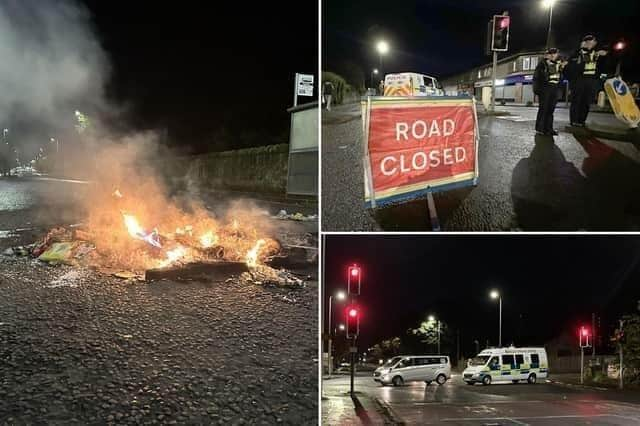Edinburgh council leader calls for ban on sale of fireworks to public following Bonfire Night attacks
and live on Freeview channel 276
Council leader Cammy Day is leading calls for a ban on the sale of fireworks to the general public in the wake of Edinburgh’s Bonfire Night mayhem.
Youths throwing fireworks targeted police officers and other emergency workers as trouble broke out in several parts of the city around November 5.
Advertisement
Hide AdAdvertisement
Hide AdNow Cllr Day has tabled a motion for Thursday’s meeting of the full council, calling for the local authority to promote community-organised firework displays but seek a ban on the public sale of fireworks.


He said: “When we see attacks on police officers, ambulances, the fire service, it is time to think again about the controls we have. There is new legislation, which sets out a licensing scheme and powers for local authorities to set up firework control zones, but I think it doesn’t go far enough. I think the public sale of fireworks is no longer needed. These are pretty much mini-explosives that people are currently able to buy.”
His motion condemns attacks on emergency service workers who were targeted with fireworks in Niddrie, resulting in police officers being injured, and the “disgraceful behaviour” which caused substantial damage to property in the east Edinburgh. And it commends police officers and firefighters for their “bravery and professionalism in seeking to protect our local communities from harm”.
In 2017, Edinburgh was branded a "war zone" after a spate of Bonfire Night incidents saw property being destroyed and a female police officer left with "serious burns" after she by hit with a firework.
Advertisement
Hide AdAdvertisement
Hide AdCllr Day said the council had written to the Scottish Government at that time, asking for legislation. “It has taken some time, but to be fair we have now got increased legislation to deal with it. But it won’t be brought in until the new year, which is why we now have time to say what while the increased regulation is welcome I don’t think it goes far enough.
“Fireworks used to be sparklers and mini-rockets, whereas now people are buying very powerful rockets and mini-explosive devices and I just don't think we need that, especially when we're seeing emergency workers, shops and individuals being targeted with fireworks. That says to me we need to change how we enjoy fireworks.
"I think organisations like community projects who want to have organised events should be able to do so. But I'm saying we should stop the public sale of fireworks and if that means a further change in legislation that’s what we should lobby the government to do.”
Another motion for Thursday’s meeting, proposed by SNP councillor Kate Campbell, also condemns the “horrendous scenes across the city, primarily in Niddrie, West Pilton and Sighthill”, recognises the “terrible impact” on residents and communities and praises the brave emergency services. But it argues the Bonfire Night disorder was a symptom of policy failure. And it says: “We must, as policy makers consider how we can create better lives for young people who have lost faith and trust in the system, power structures and authority.”
Advertisement
Hide AdAdvertisement
Hide AdThe motion calls on the council to prioritise investment in youth work and funding community centres, as well as working with police on a preventative approach, using restorative justice to re-engage young people with their communities. And it proposes a summit – involving key organisations working with young people in poorer communities, affected young people who can share their experience and police, council, social work, youth workers, criminal justice and educators – to set a strategy for creating the conditions for young people “to feel trust in authority, invested in their communities, to understand the impacts of their actions and feel respected and cared for enough to choose to act differently”.
.